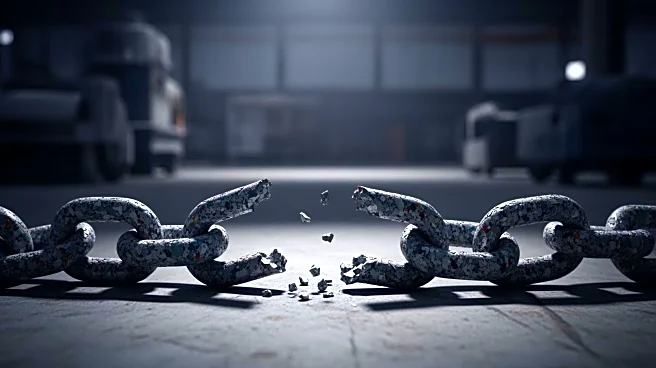What's Happening?
The plastic recycling industry is experiencing significant challenges, with numerous plant closures across Europe and the U.S. due to economic pressures. High energy and labor costs, coupled with the low
price of virgin plastic, have made it difficult for recycling plants to remain competitive. Notable closures include Biffa's Sunderland plant and Viridor's Avonmouth and Skelmersdale plants in the UK, as well as Veolia's operations in Germany. The industry has lost nearly one million tonnes of recycling capacity since 2023. The UK exports a significant amount of plastic waste, exacerbating the issue. Industry leaders are calling for political intervention to prevent further decline.
Why It's Important?
The decline in the plastic recycling industry has significant implications for environmental sustainability and economic resilience. The reliance on virgin plastic and the export of waste undermine efforts to create a circular economy. This situation could lead to increased environmental degradation and a loss of economic opportunities in the recycling sector. The industry's struggles highlight the need for policy reforms and investment in sustainable technologies to ensure long-term viability. Without intervention, the industry risks becoming dependent on unsustainable imports, which could have broader economic and environmental consequences.
What's Next?
Industry stakeholders are urging governments to implement reforms to support domestic recycling efforts. The UK government is considering a consultation to address these challenges, with potential measures including a single plastic recycling certification scheme. Additionally, the introduction of the Deposit Return Scheme in 2027 aims to improve recycling rates by incentivizing consumers to return bottles and cans. These initiatives could help stabilize the industry and reduce reliance on exports. However, significant investment and policy changes are needed to ensure the industry's future sustainability.










